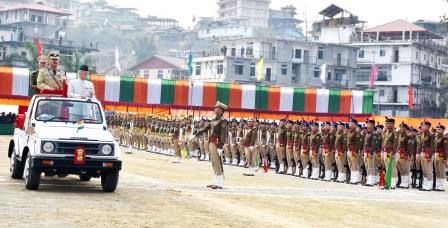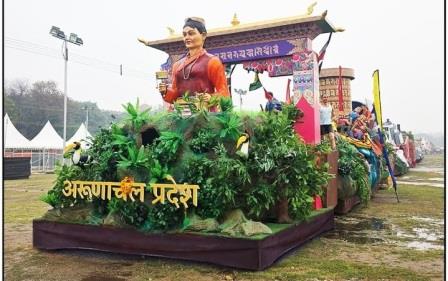Latest News
-
 Arunachal celebrates 77th Republic Day with fervour
Arunachal celebrates 77th Republic Day with fervour
-
‘Local Food Contest’ marks National Tourism Day
-
AFTF reiterates scrapping of 80:20 recruitment ratio in Arunachal Pradesh
-
Governor, First Lady host ‘At Home’ reception
-
Papum Pare DA holds interaction with newly elected ZPMs
-
Indian Army conducts ‘Know Your Army’ campaign
-
 Arunachal tableau on R-Day spotlights state’s emergence as Adventure Capital…
Arunachal tableau on R-Day spotlights state’s emergence as Adventure Capital…
-
Etalin marks National Voters’ Day, encourages youth participation in democracy
-
Sona reviews PMGSY, VVP projects in Itanagar Circle
-
Lok Bhavan celebrates UP Diwas
12th Aug 2018 09:08:PM Editorials
Rahul Gandhi’s recent questioning about the non-presentation of the Women Reservation Bill in the current session of parliament has raised many eyebrows. The longest pending bill in the history of Lok Sabha, the Bill was passed in the Rajya Sabha in March 2010 amid obstructive theatrics from parties such as the Rashtriya Janata Dal (RJD) and the Samajwadi Party, but also with an unusual level of cooperation among the national parties, especially the Congress, which was leading the UPA government, and the BJP. Thereafter they could not — or would not — overcome similar odds in the Lok Sabha to deliver on their stated support for the Bill.
Present NDA government commands a clear majority in the Lok Sabha. It is therefore in a position not only to get the Bill passed by mopping up the support of just a few more MPs, but also to rope in Congress and the Left into reaching out across the aisle in a polarised Parliament to affirm fidelity to a long-voiced promise. Every session of Parliament must serve as a reminder that the real stumbling block to the Bill has not been political from parties opposed to it, but essentially patriarchal within the very same parties that have affirmed support to it. In the two decades since it was first presented in Parliament, different governments have tried clearing it but faced tremendous opposition, often accompanied by manhandling and name-calling.
It is obvious that despite the pretty speeches and public posturing, the political space in the country, regardless of the ideological divide, is uniformly and strongly chauvinistic. Opposition to the Bill has often taken the form of a demand for the proposed quota to be diced along other parameters of disadvantage, such as caste and class. Additionally, resistance has been rationalised as a caution that women’s quota would be appropriated by relatives and proxies of powerful politicians, neatly ignoring the fact that such a reality could well be obtained with regard to male legislators too. Women need to overcome gender prejudice firstly in their respective parties before entering the wider electoral fray. To have more women in legislatures and the government is a big step towards empowering women in society. The experience of several village panchayats that have women as effective leaders bears testimony to this fact.

Kenter Joya Riba
(Managing Editor)She is a graduate in Science with post graduation in Sociology from University of Pune. She has been in the media industry for nearly a decade. Before turning to print business, she has been associated with radio and television.
Email: kenterjoyaz@easternsentinel.in / editoreasternsentinel@gmail.com
Phone: 0360-2212313

